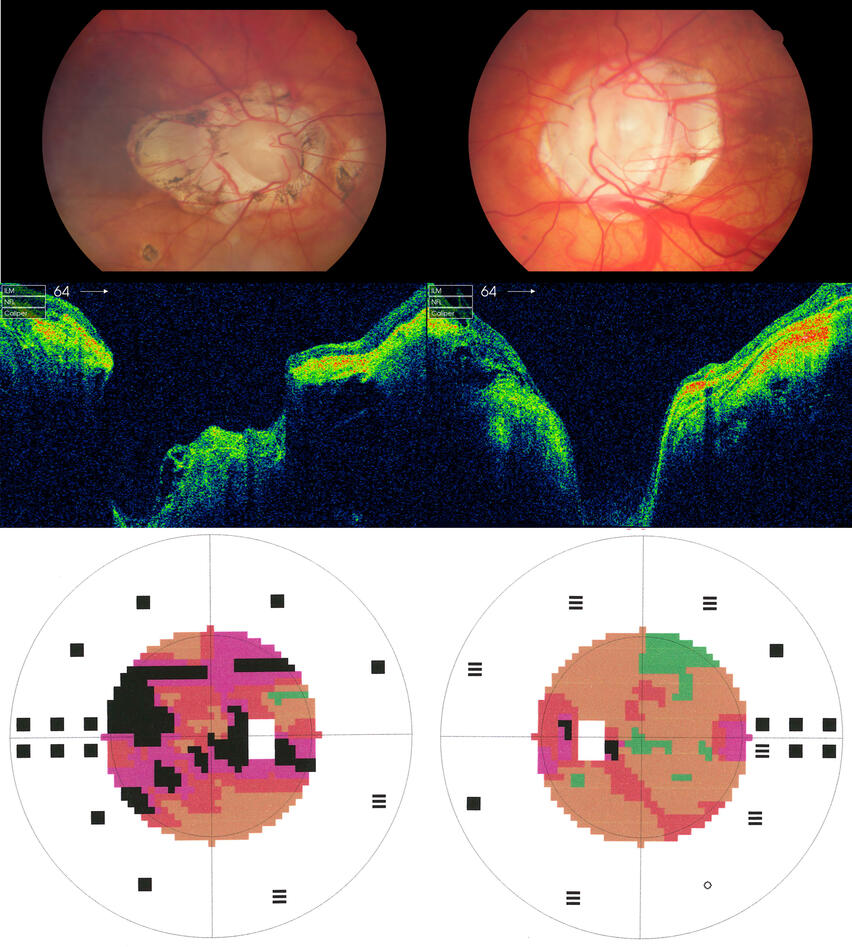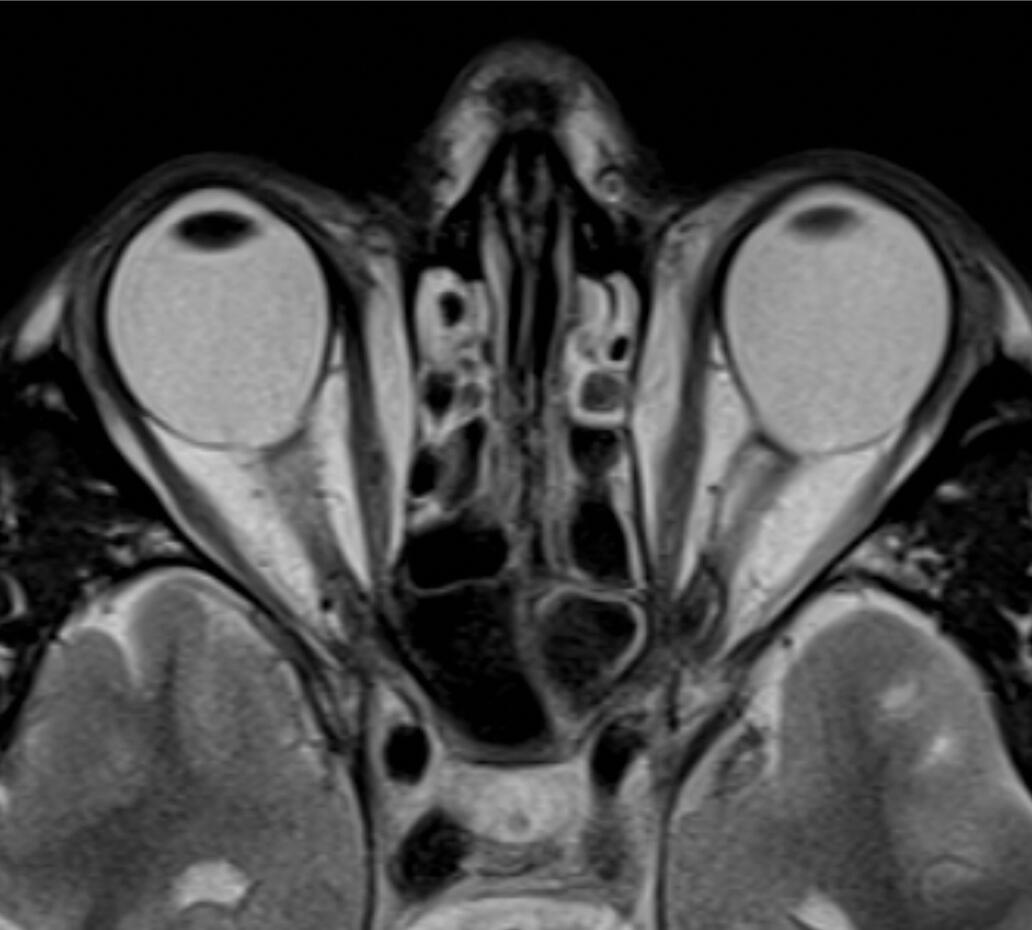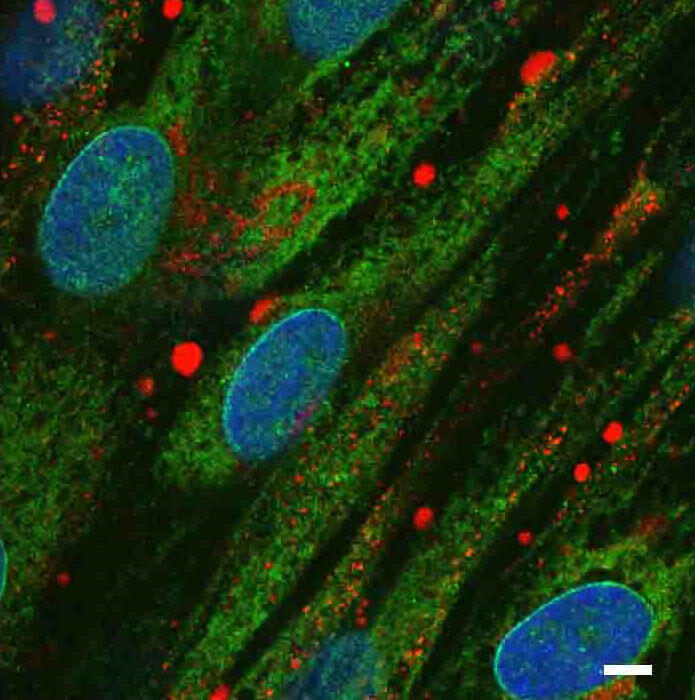Bergen Ophthalmogenetic Research Group
Hereditary eye disorders are a major cause of visual impairment in children and adolescents. Genetic factors are also important for the development of eye disorders in adult life. Pinpointing genetic causes of eye disorders is pivotal for precise diagnosis and is essential for rational management and the development of effective therapies.

Main content
The Bergen Ophthalmogenetic Research Group is a collaborative effort between investigators at the University of Bergen and Haukeland University Hospital. The research group aims to uncover the genetic origins of hereditary eye disorders and explore the consequences at a cellular and molecular level, both in patients and model organisms. The aim is to advance precise diagnostics and foster the development of targeted, innovative therapies.
Group members and collaborators
Dept. of Ophthalmology, Haukeland University Hospital / Dept. of Clinical Medicine, University of Bergen:
- Professor Cecilie Bredrup
- Postdoc Ileana Cristea
- PhD candidate Titas Gladkauskas
- Professor Olav Haugen
- Professor Gunnar Høvding
- Consultant Ragnhild W. Jansson
- Technician Unni Larsen
- Consultant Anne E. C. Mellgren
- PhD candidate Linda Xu
- Professor Eyvind Rødahl (PI)
Dept. of Medical Genetics, Haukeland University Hospital / Dept. of Clinical Science, University of Bergen:
- Postdoc Sigrid Aslaksen
- Researcher Ingvild Aukrust
- Researcher Ove Bruland
- Consultant Sofia Douzgou Houge
- Professor Gunnar Douzgos Houge
- Professor Per Knappskog
- PhD candidate Roya Mehrasa
Financial support
Regional Health Authority Western Norway (Helse Vest), The Norwegian Research Council, Jon S Larsen Foundation, The Norwegian Retinitis Pigmentosa Association, The Norwegian Association of the Blind and Visually Impaired, University of Bergen, and Haukeland University Hospital.
Publications 2018-2023
Noteworthy Research Outputs (2018-2023)
- Gladkauskas T, Bruland O, Abu Safieh L, Edward DP, Rødahl E, Bredrup C. Corneal Vascularization Associated with a Novel PDGFRB Variant. Invest Ophthalmol Vis Sci. 2023;64:9. doi: 10.1167/iovs.64.14.9.
- Mehrasa R, Cristea I, Bredrup C, Rødahl E, Bruland O. Functional characterization of all-trans retinoic acid-induced differentiation factor (ATRAID). FEBS Open Bio. 2023;13:1874-1886. doi: 10.1002/2211-5463.13685.
- Cristea I, Abarca H, Christensen Mellgren AE, Trubnykova M, Mehrasa R, Peters DJM, Houge G, Hennekam RCM, Rødahl E, Bruland O, Bredrup C. A Pellino-2 variant is associated with constitutive NLRP3 inflammasome activation in a family with ocular pterygium-digital keloid dysplasia. FEBS Lett. 2023;597:1290-1299. doi: 10.1002/1873-3468.14597.
- Cristea I, Bruland O, Aukrust I, Rødahl E, Bredrup C. Pellino-2 in nonimmune cells: novel interaction partners and intracellular localization. FEBS Lett. 2021; 595:2909-2921. doi: 10.1002/1873-3468.14212.
- Cristea I, Bruland O, Rødahl E, Bredrup C. K+ regulates relocation of Pellino-2 to the site of NLRP3 inflammasome activation in macrophages. FEBS Lett. 2021; 595:2437-2446. DOI: 10.1002/1873-3468.14176
- Bredrup C, Cristea I, Safieh LA, Di Maria E, Gjertsen BT, Tveit KS, Thu F, Bull N, Edward DP, Hennekam RCM, Høvding G, Haugen OH, Houge G, Rødahl E, Bruland O. Temperature-dependent autoactivation associated with clinical variability of PDGFRB Asn666 substitutions. Hum Mol Genet. 2021;30:72-77. doi: 10.1093/hmg/ddab014.
- Bredrup C, Stokowy T, McGaughran J, Lee S, Sapkota D, Cristea I, Xu L, Tveit KS, Høvding G, Steen VM, Rødahl E, Bruland O, Houge G. A tyrosine kinase-activating variant Asn666Ser in PDGFRB causes a progeria- like condition in the severe end of Penttinen syndrome. Eur J Hum Genet. 2019; 27:574-581. doi: 10.1038/s41431-018-0323-z.
- Xu L, Jensen H, Johnston JJ, Di Maria E, Kloth K, Cristea I, Sapp JC, Darling TN, Huryn LA, Tranebjærg L, Cinotti E, Kubisch C, Rødahl E, Bruland O, Biesecker LG, Houge G, Bredrup C. Recurrent, Activating Variants in the Receptor Tyrosine Kinase DDR2 Cause Warburg-Cinotti Syndrome. Am J Hum Genet. 2018;103:976-983. doi: 10.1016/j.ajhg.2018.10.013.


